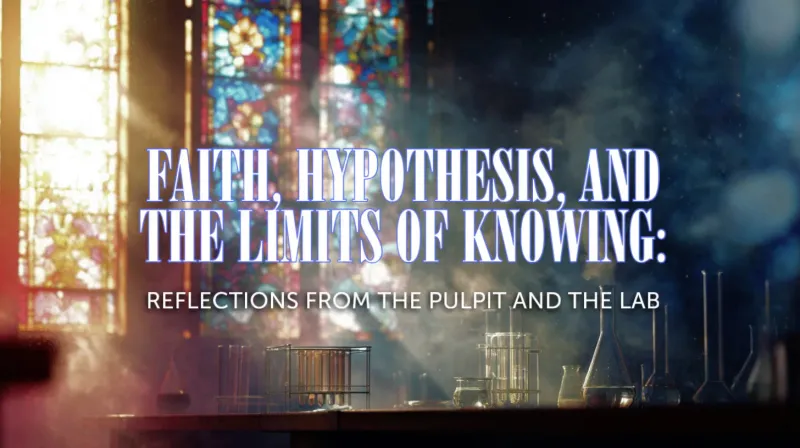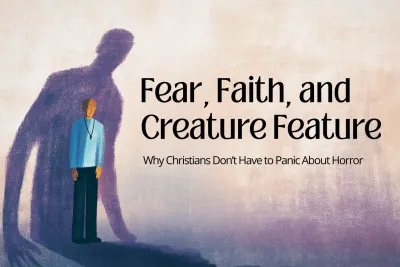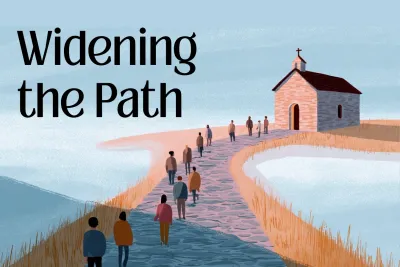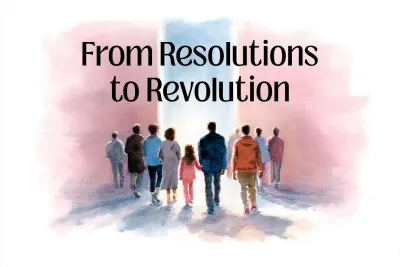Faith, Hypothesis, and the Limits of Knowing
Today, as I prepared for another episode of Created in the Image of God, I was alerted by an email about a paper on Academia.edu that dives into a perennial—and, I believe, deeply misunderstood—debate: the relationship between faith, evidence, and knowledge.
As someone who has served congregations across Europe, organized the Feast of Tabernacles in 1985 Poland at the height of political turmoil, and delivered family ministry leadership worldwide in the Worldwide Church of God, these themes cut to the heart of both my lived and spiritual experience. In my trilogy (The People of the Sign and its sequels), I recount sermons where I argued that faith isn’t about blind, unreasoned certainty, nor about scientific “proofs” of God. Instead, faith—biblically defined as "the substance of things hoped for, the evidence of things not seen"—functions more like a working hypothesis. One that you’re convinced of, that you invest in, that shapes your actions and affections, even as you acknowledge its incompleteness.
Faith as Hypothesis
The author of the paper rightly outlines how science and logic operate on incremental, falsifiable models—making predictions, testing them, refining understanding. He then questions whether biblical faith, which asks us to believe without immediate empirical proof, is fundamentally incompatible with this method.
It’s a great question. He and I agree that we can, in fact, reconcile Faith and Science. The devil, of course, is in the detail.
Having preached “faith as the hypothesis you bet your life on” in pulpits from Hamburg to Pasadena, I have put my money where my mouth is, and consistently done so myself, based on Hebrews 11’s assertion: “Now faith is the substance of things hoped for, the evidence of things not seen.” Faith isn’t the absence of evidence—it’s a reasoned confidence, a leaning forward into a pattern of meaning that resonates with what we see, but which remains incomplete until fulfillment.
The biblical story tells us, “now we see through a glass, darkly,” and “now I know in part; then I shall know fully, even as I am fully known.” There is a humility in this—an admission that all of us, scientist and preacher alike, are ultimately wagering on a story that we cannot prove in the materialist sense. But unlike the caricature of faith as superstition or delusion, the great scriptural narrative invites us to live as if the “not yet” is as real as the “already.”
The Fruitfulness of Faith
Even in the world of science, hypotheses—if fruitless—are discarded. In faith, too, the hypothesis is always pointed toward fruitfulness. In one of my favorite metaphors, Paul envisions that one day, faith will be fulfilled in a knowing as intimate as “Adam knew Eve”—and that deep knowing bears fruit. The “substance” of faith today is meant to be generative: not just an idea, but a life lived, risks taken, communities built in hope—that which is “not seen” becomes seen in the harvest it produces.
This isn’t a static certainty; it’s a dynamic interaction between belief and the evidence of our lives. Some of my most meaningful ministry moments came—often in the face of enormous political, cultural, and personal obstacles—when the community took the risk of acting on the faith “hypothesis.” We saw lives changed, not because the theory was proven in the lab, but because it brought forth love, courage, and, sometimes, the improbable fruit of reconciliation.
Logic, Science, and the Search for Meaning
The academic author rightly points out that science rests on unprovable axioms (for instance: the comprehensibility of the universe, the reliability of induction). In this sense, all of us—religious or otherwise—start the journey with faith in something. Science thrives by bracketing metaphysical questions, but as soon as we ask “why is there something rather than nothing?” or “what is beauty, what is goodness?”—we leave the laboratory and enter the sanctuary.
The biblical logic of faith, illustrated in the stories of Daniel and the temptations of Christ, doesn’t shy from evidence or reasoning. It simply insists that not all evidence is immediately empirical, and that hypotheses about ultimate reality may only be confirmed in lived experience—sometimes only in the fullness of time. As Keats’s “Ode on a Grecian Urn” muses, “Beauty is truth, truth beauty,—that is all / Ye know on earth, and all ye need to know.” There is a form of knowing that is participatory, not merely propositional.
A Dialogue Worth Having
I have invited the author of that paper onto my show, in the hope that we can deepen this conversation. My prior ministry, and the path I continue to walk, are rooted in the conviction that faith and reason are not adversaries, but dialectical partners. Faith operates as a hypothesis we act upon, and the truest evidence is not citation or statistical significance, but life transformed. The “fruits”—personal, communal, even cosmic—are the strongest argument faith can offer.
If you’ve wrestled with these questions—or heard one of my sermons on this theme—I’d love for you to weigh in. How has acting “by faith” as your working hypothesis changed your outcomes? And how have your outcomes changed your working hypothesis? What have you seen in part, that you hope one day to see fully? When have you known the fruitfulness that follows not certainty, but the willingness to live as if the promise were true?
This is the conversation that matters most—and, I suspect, the one that never truly ends.
—Wade Fransson






